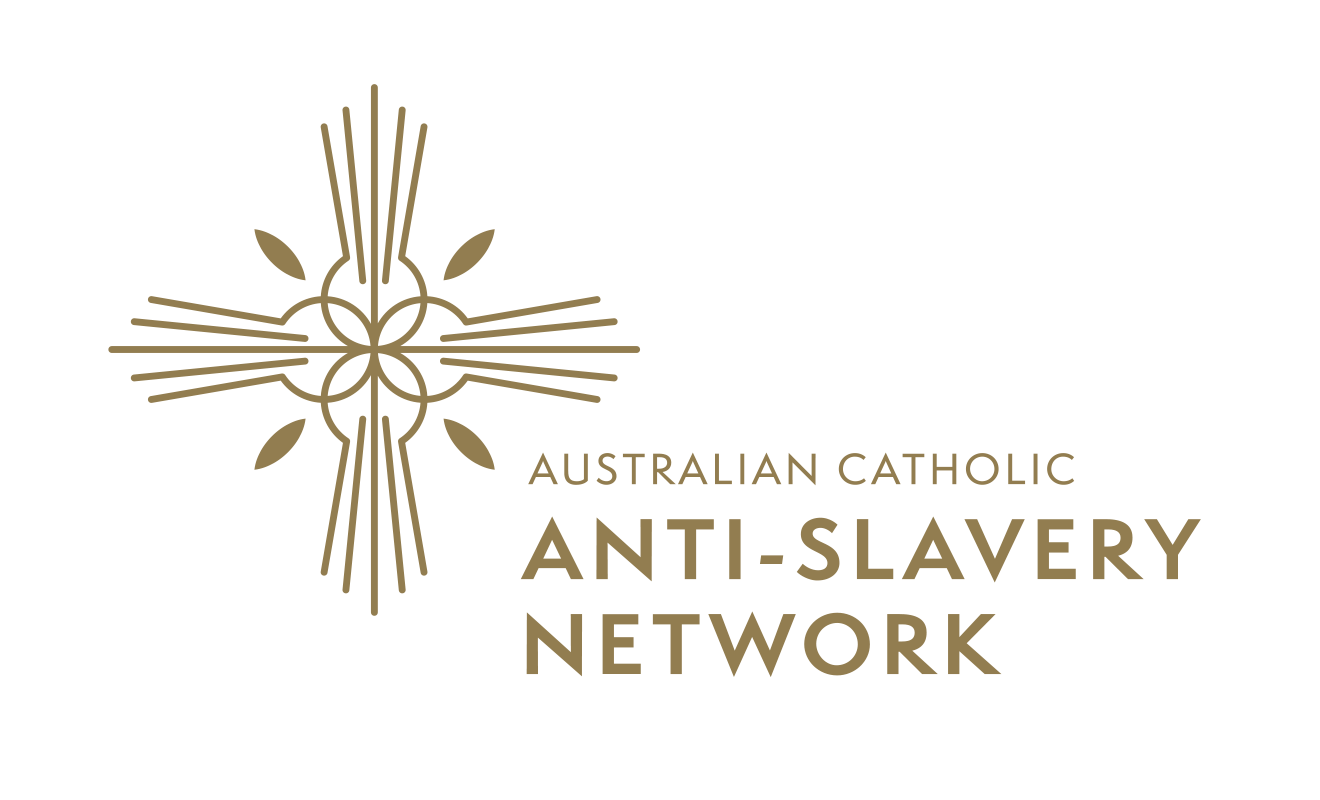Strengthening Australia’s Modern Slavery Act
Moe Turaga addressing a procurement conference in Brisbane in August 2025 (Credit: CIPS Australasia)
All large Australian companies should be required to report on modern slavery risks in their operations and supply chains, and face penalties if they fail to do so.
The Australian Public Sector should be required to comply with the Modern Slavery Act, which would be better administered by the Office of the Fair Work Ombudsman.
Labour hire licensing covering every Australian jurisdiction is needed to protect workers at risk of forced labour.
These are the main recommendations the Australian Catholic Anti-Slavery Network (ACAN) has made to the Federal Government to strengthen Australia’s Modern Slavery Act.
In a personal reflection as part of the ACAN submission, ACAN Lived Experience Advisor Moe Turaga said that the Act had changed the landscape for people of lived experience. However he said that penalties were now required to ensure more organisations did the right thing by people at risk of extreme exploitation.
“The Act has forced companies to consider uncomfortable truths. It has made modern slavery a governance issue. And while many businesses have responded with tick-box compliance, a growing number are moving toward meaningful engagement… That’s progress, and it takes time,” Mr Turaga said.
“The Act was never designed to solve modern slavery overnight. It was designed to expose it. And it has. The Modern Slavery Register shows patchy reporting, weak enforcement and a culture of non-compliance. That’s not a failure of the Act. That’s a failure of regulation.”
“The Act gave us the scaffolding. Now we need the steel.”
Mr Turaga said the Act has already made a big difference to people like himself with lived experience of modern slavery in Australia.
“For the first time, people with lived experience are being invited into the conversation as experts. Lived experience is beginning to shape remedy pathways, informing policy, and challenging the assumption that modern slavery doesn’t happen in Australia. This visibility and momentum are thanks to the Act,” Mr Turaga said.
To inform the ACAN submission, ACAN staff surveyed Modern Slavery Liaison Officers and Modern Slavery Working Group members across the Network in August 2025, asking them about a range of measures they thought would strengthen the Modern Slavery Act.
“100% of respondents wanted Australian Public Sector agencies to comply with Act,” ACAN Executive Officer Alison Rahill said.
“Since the Modern Slavery Act came into force, Catholic organisations in ACAN have demonstrated that it is possible for a large, diverse and dispersed network to respond to modern slavery risk by implementing systems and processes that can be accurately measured. If Catholic organisations can put these systems in place, public sector agencies must also be capable of doing so.
“More than 90% of respondents wanted mandatory due diligence as part of the reporting process, with specific metrics. There was also overwhelming support for regulation of labour hire providers either by existing state schemes or a national scheme.
“As we say in our submission, the fundamental issue contributing to a culture of non-compliance with the Act is the absence of any enforcement. Going forward, we believe that the Office of the Fair Work Ombudsman would be a much more suitable agency to oversee compliance activities than the Federal Attorney General’s Department. That view was supported by the majority of our survey respondents,” Ms Rahill said.
The four recommendations to strengthen Australia’s Modern Slavery Act in the ACAN submission are:
1. A strong government regulator with enforcement powers including penalties to compel entities to comply with the Modern Slavery Act.
2. New reporting requirements for mandatory due diligence, metrics and assurance.
3. New requirements for the Australian Public Sector to comply with the Act.
4. The introduction of a national labour hire licensing scheme.
In his reflection, Mr Turaga added that he was proud to be a part of the Australian Catholic response to modern slavery.
“In the past few years of speaking about modern slavery, I have not come across any organisations or group of organisations working together with their suppliers on the scale of the Catholic response,” Mr Turaga said.
Read the CathNews coverage of the ACAN submission.
Read the full ACAN submission and Moe Turaga’s reflection.

